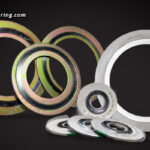- pinup
- 1win oyna
- pin up
- aviator game
- mosbet
- mostbet
- mostbet casino
- mostbet casino
- pin up
- pin up
- pin-up
- mosbet casino
- pinup
- farabet
- mostbet uz casino
- pin up india
- mostbet casino
- mostbet
- mostbet az
- mosbet casino
- pin up
- mostbet uz
- mostbet casino
- mostbet casino
- slot 1win
- pinco slot
- mostbet az
- 1vin
- mostbet uz casino
- pin up az
- pin up
- pin up casino
- pinco casino
- pin up uz
- pin up slots
- 1win
- pinco slot
- 1 win casino
In industrial settings, the demand for dependable sealing solutions is of utmost importance. A key element in this regard is the industrial gasket, which serves to establish a seal between two adjoining surfaces. These seals are essential for preventing the escape of gases, liquids, or other materials, thereby preserving the system’s integrity and functionality. Gaskets play a critical role across various industries, including automotive and energy production, contributing to safety, efficiency, and overall performance.
Types of industrial gaskets
Numerous types of industrial gaskets exist, each tailored to meet particular requirements. The most common types include –
Metal gaskets
Metal gaskets are constructed from a single piece of metal or a combination of metal and filler materials. These gaskets are utilized in scenarios that demand enhanced durability, resistance to pressure, and the ability to withstand high temperatures. They are particularly critical in applications where sealing is essential under extreme pressure or temperature conditions. Typical uses include high-pressure pipelines, reactor seals in chemical manufacturing facilities, and pressure vessels.
Non-metallic gaskets
Non-metallic gaskets are composed of materials such as rubber, elastomers, or PTFE (Polytetrafluoroethylene), providing superior sealing capabilities in low to moderate pressure environments. These gaskets are particularly suitable for applications in sectors like food processing, pharmaceuticals, and water treatment, where the risk of contamination is a significant concern. Common applications encompass the food and beverage industry, pharmaceutical machinery, and water treatment facilities.
Sheet gaskets
Sheet gaskets are generally fabricated from a solid piece of material and are primarily employed to seal flat surfaces. These gaskets can be customized into various shapes and sizes to accommodate specific needs. The materials used for sheet gaskets can include rubber, PTFE, and fiber composites, tailored to meet the demands of different industries. Typical applications include piping systems, valve sealing, and automotive components.
Spiral wound gaskets
Spiral wound gaskets consist of alternating layers of metal and filler material. The metal imparts strength, while the filler material provides flexibility and compressibility, ensuring a secure seal. This type of gasket is known for its durability and is frequently used in industries that require high resistance to pressure and temperature, such as petrochemicals and energy production. Common applications include high-pressure systems, heat exchangers, and boilers and reactors.
Ring type joint gaskets
Ring Type Joint gaskets are specifically engineered to fit into grooves on flanges and are predominantly constructed from metal. Their exceptional resistance to elevated temperatures and pressures renders them particularly suitable for sealing pipe connections within the oil and gas sector. RTJ gaskets are available in various configurations, including oval, octagonal, and round, tailored to meet specific application needs. Typical applications included oil and gas pipelines, offshore drilling platforms, and refining systems.
Compressed fibre gaskets
Compressed fibre gaskets are produced from a combination of organic fibres and fillers. They are employed in scenarios where resistance to temperature, flexibility, and effective sealing are essential. While these gaskets are suitable for lower-pressure applications compared to their metal counterparts, they still deliver dependable sealing performance. Common applications include pumps and compressors, automotive exhaust systems, and heat exchangers.
Materials used in industrial gaskets
The choice of material for industrial gaskets is influenced by the specific requirements of the application, including the type of fluid or gas being sealed, as well as the temperature and pressure conditions. Below, we will examine the most prevalent materials used in gasket manufacturing.
Rubber
Rubber gaskets are constructed from materials such as nitrile, EPDM, and silicone. Their high flexibility renders them particularly suitable for sealing applications involving irregular surfaces. These gaskets effectively seal water, oils, and gases, which contributes to their widespread use in the automotive, food processing, and water treatment industries.
PTFE (Polytetrafluoroethylene)
PTFE (Polytetrafluoroethylene) is a high-performance plastic recognized for its outstanding chemical resistance and capacity to endure elevated temperatures. PTFE gaskets are particularly effective for sealing highly corrosive substances, including acids, solvents, and various chemicals, and are extensively utilized in the pharmaceutical, chemical, and food processing industries.
Graphite
Graphite gaskets are designed for use in extreme temperature and pressure conditions, as they can maintain a reliable seal even in challenging environments. They are commonly found in high-temperature systems and industries that handle steam and gas.
Elastomers
Elastomers, including nitrile and EPDM, provide exceptional sealing capabilities under both static and dynamic conditions. These materials are frequently employed in sealing applications where the gasket must compress to create a tight seal without deteriorating under stress or temperature variations.
Metal alloys
Metal gaskets, typically composed of stainless steel, copper, or other alloys, are utilized in high-pressure and high-temperature scenarios. They offer remarkable durability, corrosion resistance, and the ability to withstand extreme temperatures, making them well-suited for the petrochemical, power, and automotive industries.
Applications of industrial gaskets
Industrial gaskets find applications across various industries where safety, performance, and leak prevention are critical. The following are some of the primary industries that depend heavily on gaskets.
Automotive industry
Gaskets serve multiple purposes in the automotive industry, including sealing engines, exhaust systems, and cooling systems. They play a critical role in preventing fluid leaks and enhancing the overall efficiency of engines and machinery.
Oil and gas industry
The oil and gas industry depends on gaskets for the effective sealing of pipelines, valves, pumps, and pressure vessels. Due to the extreme conditions characterized by high pressure and corrosive substances, there is a significant demand for robust and durable gaskets. Commonly utilized types in this industry include spiral wound and ring type joint (RTJ) gaskets.
Chemical and pharmaceutical industries
Gaskets are essential in chemical processing facilities for preventing the escape of hazardous chemicals or gases. Materials such as PTFE and graphite gaskets are frequently employed because of their resistance to corrosive substances and high temperatures. The pharmaceutical sector similarly utilizes gaskets to maintain sterile conditions and avert contamination.
Energy industry
The energy industry, encompassing both nuclear and fossil fuel power plants, relies on gaskets to ensure the integrity of reactors, turbines, and pressure vessels. In these critical environments, metal gaskets are preferred due to their strength and ability to withstand high temperatures.
Food and beverage industry
Gaskets are widely used in the food and beverage processing sector to prevent contamination and uphold sanitary standards. Materials that are non-toxic and non-reactive, such as rubber, silicone, and PTFE, are particularly suitable for this application.
Water treatment
Gaskets are vital in water treatment facilities for sealing pipes, valves, and filtration systems. Non-metallic gaskets are commonly employed in this context, as they can endure the chemical treatments and pressures associated with water purification.
Industrial gaskets are essential for ensuring the safety, efficiency, and functionality of systems across various industries, such as automotive, energy, pharmaceuticals, and chemicals. The diverse range of materials and types available means that choosing the appropriate gasket is crucial for effective sealing, which helps prevent leaks and minimizes expensive downtime. Whether operating in the petrochemical industry, automotive production, or energy generation, selecting the right gasket is a critical investment for maintaining operational safety and extending equipment lifespan. Vrushabh Engineering is one industrial gaskets manufacturer in India that specializes in the production of high-quality gaskets, providing businesses with reliable, durable, and precise sealing solutions suitable for even the most challenging applications.






